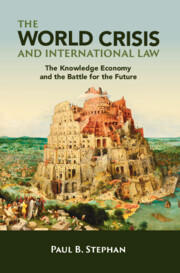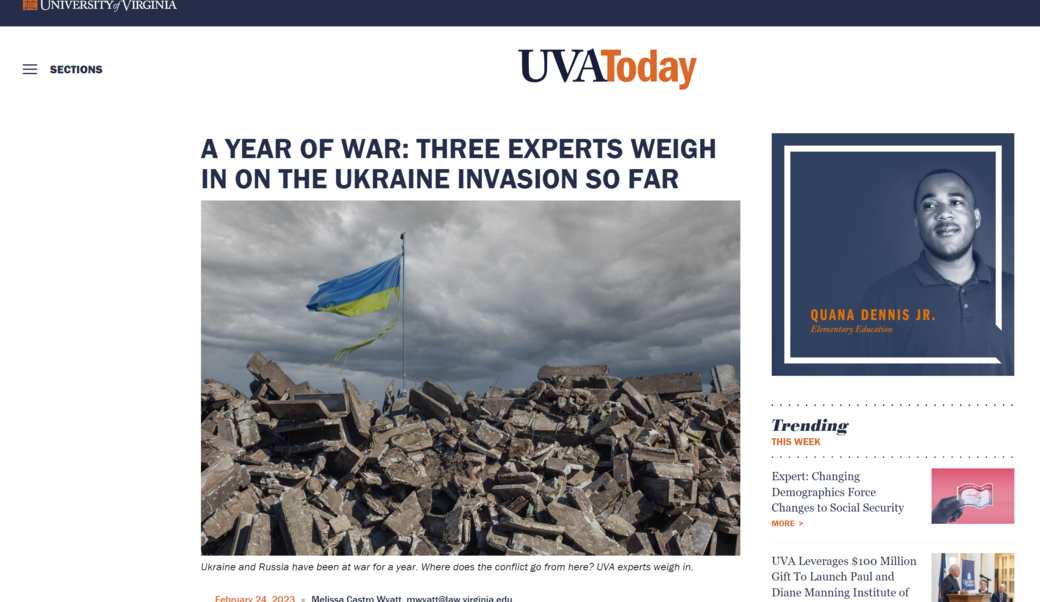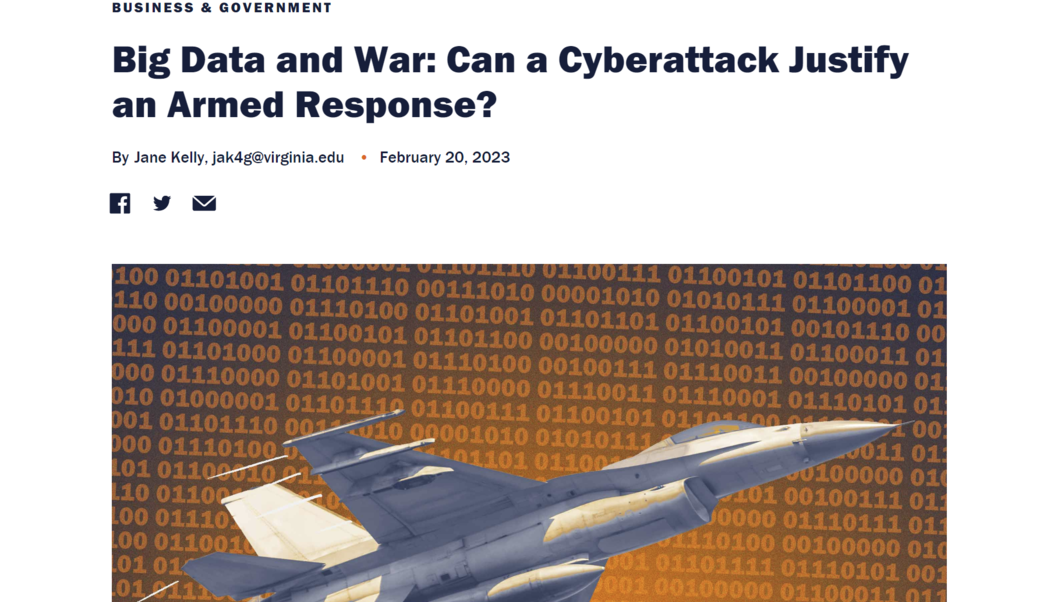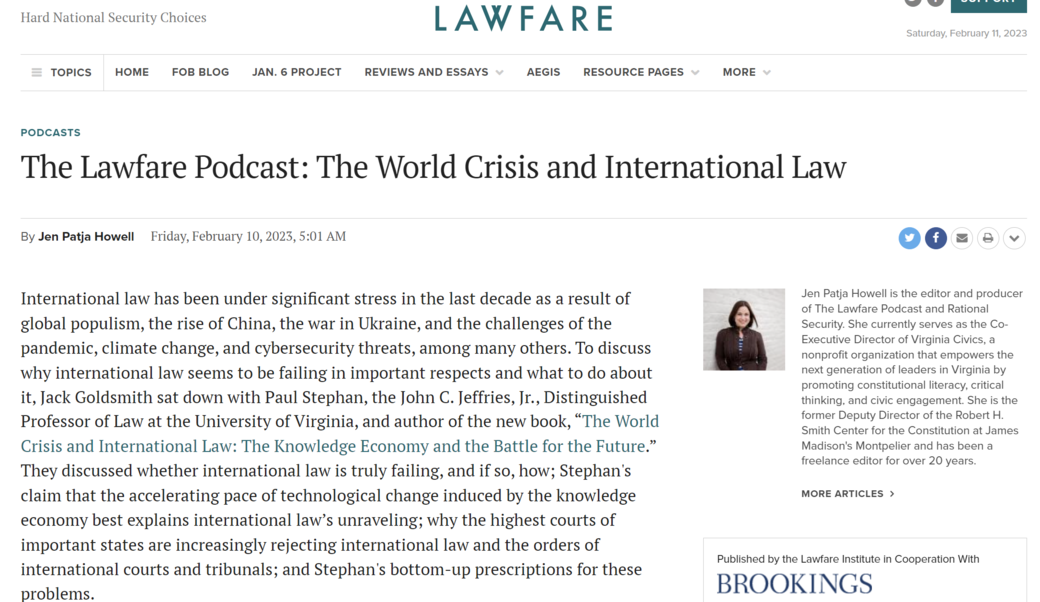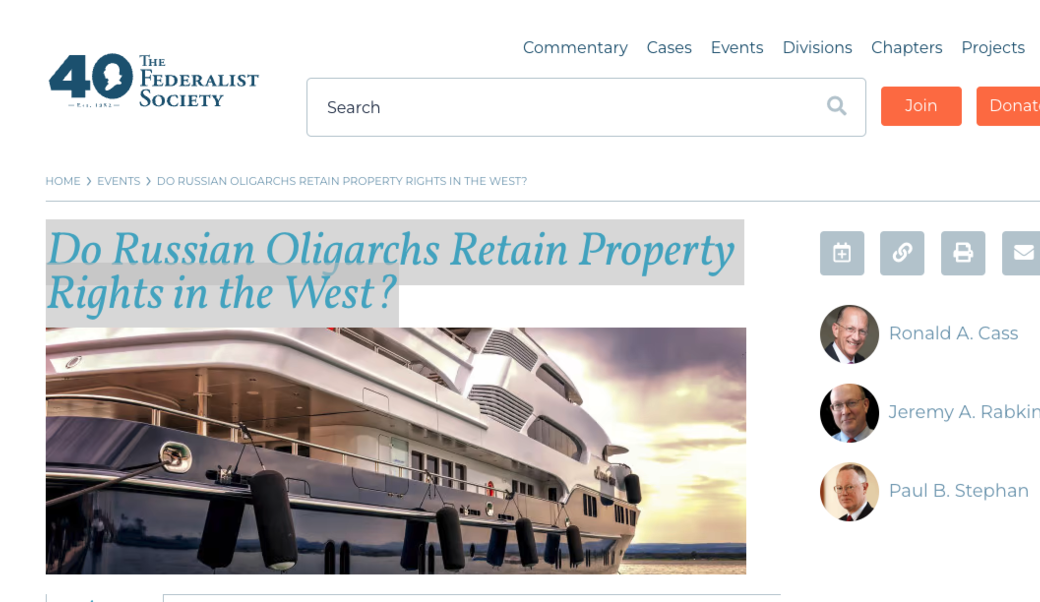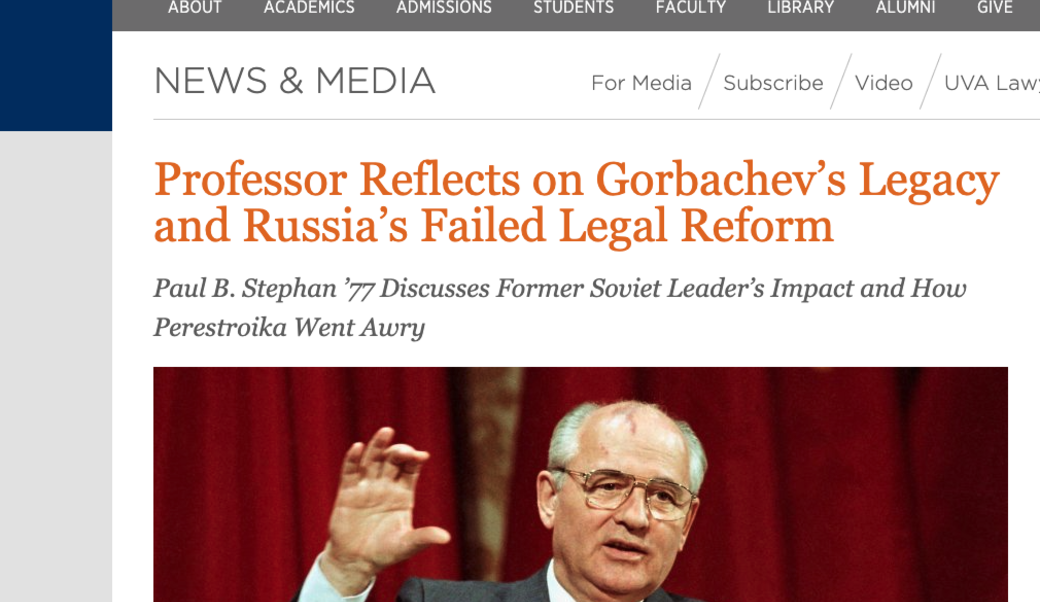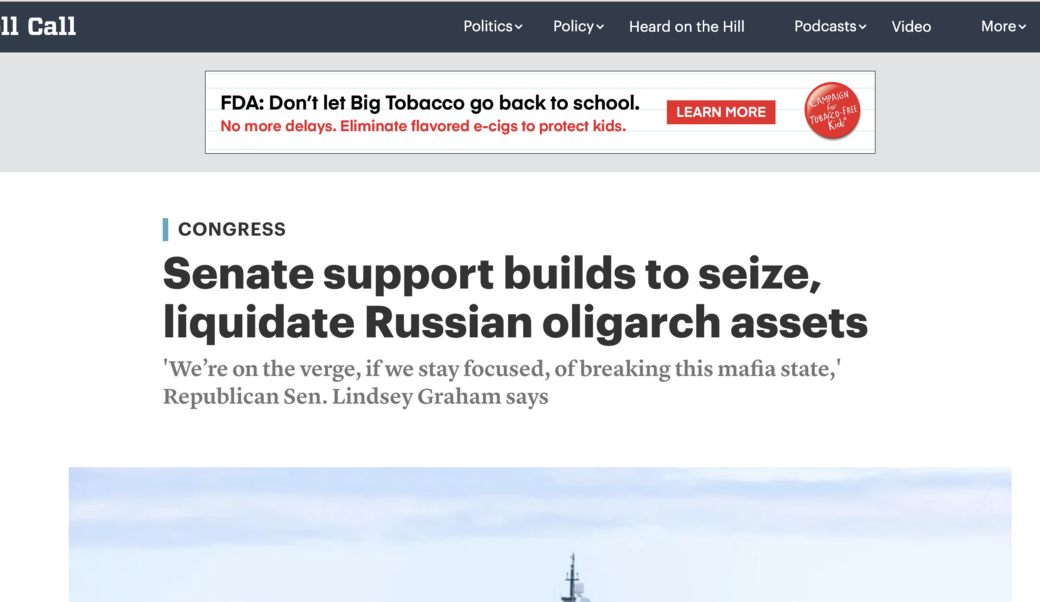Fast Facts
- John C. Jeffries, Jr., Distinguished Professor of Law at the University of Virginia Law School
- Former special counsel to the General Counsel, U.S. Depart of Defense, and counselor on international law, U.S. Department of State
- Expertise in foreign relations law, Russian domestic political economy and international relations, international law, comparative law, international business, international civil litigation, international dispute resolution
Areas Of Expertise
- Foreign Affairs
- Europe
- Law and Justice
- Economic Issues
- Supreme Court
Paul B. Stephan, John C. Jeffries, Jr., Distinguished Professor of Law at the University of Virginia Law School, is an expert on foreign relations law, international law, comparative law, international business, international civil litigation, and international dispute resolution, with an emphasis Russian, Soviet, and post-Soviet legal systems. He joined the University of Virginia faculty in 1979. During 2006-07, he served as counselor on international law in the U.S. Department of State, and in 2020-21 as special counsel to the general counsel in the U.S. Department of Defense. He also worked with the U.S. Department of Treasury, the IMF, the World Bank, and the OECD on issues of global tax reform from 1993 to 1998. He was coordinating reporter for the American Law Institute’s Restatement (Fourth) of the Foreign Relations Law of the United States (2018). His latest books are The World Crisis and International Law – The Knowledge Economy and the Battle for the Future and Applying Municipal Law in International Disputes.
Stephan earned his BA and MA from Yale University in 1973 and 1974 and his JD from the University of Virginia in 1977. Before returning to Virginia, he clerked for Judge Levin Campbell of the U.S. Court of Appeals for the First Circuit and for U.S. Supreme Court Justice Lewis F. Powell Jr. He has taught as a visiting professor at the Moscow State Institute for International Relations, the University of Vienna, Münster University, Lausanne University, Melbourne University, University of Pantheon-Assas (Paris II), Sciences Po, Paris I, the Interdisciplinary Centre Herzliya, Sydney University, the Peking University School of Transnational Law in Shenzhen, China, and the University of Tartu’s Pärna College. He also has visited at Columbia Law School and Duke Law School and served as a scholar in residence in the London office of the international law firm Wilmer Hale. He has served as an expert witness on matters of international and foreign law in many judicial and arbitral proceedings. In particular he has assisted Ukraine’s national oil and gas company in its international claims against Russia for property seized in Crimea. Both houses of Congress have invited him to testify on foreign relations issues on several occasions, most recently on the use of sanctions against Russia and its supporters in response to the invasion of Ukraine.
Stephan has written many books and published more than 100 articles. He is the co-author, with Robert Scott, of The Limits of Leviathan: Contract Theory and the Enforcement of International Law (Cambridge University Press, 2006), as well as many textbooks concerning the world economy. In summer 2025, he will lead a course at the Xiamen Academy of International Law on the challenges big data poses for international law. The Academy will publish these lectures in 2026.
